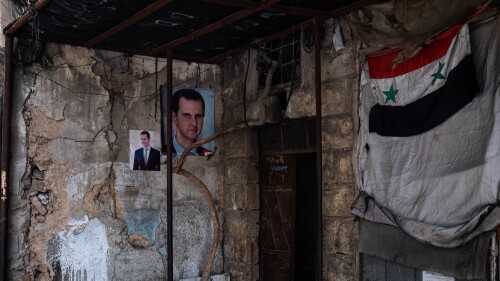[FrontPageMagazine.com title: “The Terrorist Murder of a Palestinian Apologist”]
An Italian named Angelo Frammartino, 25, espoused the typical anti-Israel views of a far-leftist, as he expressed in a letter to a newspaper in 2006:
We must face the fact that a situation of no violence is a luxury in many parts of the world, but we do not seek to avoid legitimate acts of defense. … I never dreamed of condemning resistance, the blood of the Vietnamese, the blood of the people who were under colonialist occupation or the blood of the young Palestinians from the first intifada.
Angelo Frammartino |
Actively to forward his beliefs, Frammartino went to Israel in early August 2006 to serve as a volunteer with ARCI, a far-leftist NGO, working with Palestinian children at the Burj al-Luqluq community center in eastern Jerusalem. But on August 10, he was stabbed in a terrorist assault at Sultan Suleiman Street, near Herod’s Gate in Jerusalem, twice in the back and once in the neck. He died shortly after, only two days before his planned return to Italy. The killer, soon identified as Ashraf Hanaisha, 24, turned out to be a Palestinian affiliated with Palestinian Islamic Jihad. A resident of the village of Qabatiya in the Jenin area, Hanaisha apparently planned to attack a Jewish Israeli but made a mistake.
Damage control soon followed. The Palestinian Authority’s news agency, WAFA, carried a statement by the Burj al Luqluq community center condemning the murder in no uncertain terms: “Nothing could describe our emotions for what happened. Our thoughts are with the family and friends of Angelo, they have our deepest sympathy.” Several Palestinian NGOs then organized a vigil in Frammartino’s memory. For her part, Hanaisha’s mother launched an appeal, via the Italian newspaper La Repubblica, for the forgiveness of her son.
In response to this outpouring, Frammartino’s parents did forgive Hanaisha. From the family home in Monterotondo, the father, Michelangelo, said that “he welcomes and appreciates, despite the undeletable sorrow, the plea for forgiveness made by the murderer’s mother” and he expressed a hope that the parents’ gesture “will bring to an end this extremely sad story.” The father went further, telling the Corriere della Sera newspaper that he felt no hatred toward his son’s murderer:
Angelo was working to promote peace. The message he sought to convey is greater than anything else. … the circumstances confirm that Angelo was a victim of the war, of the injustice in the world. When we are talking about a situation of tension, absence of common sense dominates. I do not feel hatred because Angelo’s thought, the principles that always motivated him, were definitely not of hatred or revenge.
(1) These signals from Qabatiya to Monterotondo and back amounted to a curious and despicable pas de deux, with each side remorsefully implying things would be just fine if only Hanaisha had killed his intended victim: “Sorry, I thought he was a Jew,” reads the headline in La Stampa. The Palestinians conveyed a message of “Excuse us, we did not mean to kill your son,” while the family replied with a “Understood, we accept that you made a mistake.”
(2) Writing in the Jerusalem Post, Barbara Sofer suggests an excellent way to honor the memory of Angelo Frammartino, by having his family join in solidarity with another high-profile victim of Palestinian violence. She notes that the Koby Mandell Foundation, named for another young man brutally murdered by Palestinian terrorists, “provides therapeutic camping experiences for terror survivors or the families of those murdered by terrorists. … It’s non-political, hosts Jews and non-Jews, and works on building character.” Sofer suggests that those who want to honor Frammartino’s memory “might want to support this camp that works to mitigate the evil brought by those who duped and killed their son.”
(3) Even if he was a political extremist, all accounts portray Frammartino as a gentle soul. If so, that only confirms how much out of depth he was in Jerusalem. As Calev Ben-David points out, also in the Jerusalem Post, his death is a reminder “that outsiders who come to this region, even with the best of intentions, should first understand that they, no less than Israelis - or, for that matter, those in the Arab world who truly want peace - can just as easily fall victim to those here who have only the worst of intentions.”
(4) Put more cruelly, given Frammartino’s idiotic views (“I never dreamed of condemning resistance”), had he survived his knifing, perhaps surviving in a state of total bodily paralysis, would he have seen the attack on him as terrorism? Or would he have learned nothing and still considered it an act of legitimate self-defense?
--------------------------------------------------------------------------------
Aug. 28, 2006 update: Bloggers sometimes re-title articles in posting, sometimes for the better. At the New English Review today, Rebecca Bynum improved on my title with “Funny, he looked like a Jewish Israeli...”
July 15, 2007 update: The politics and identity of his victim won’t make much difference to Ashraf Hanaisha, whom the Military Court of Judea today sentenced to life in prison for murdering Angelo Frammartino.








